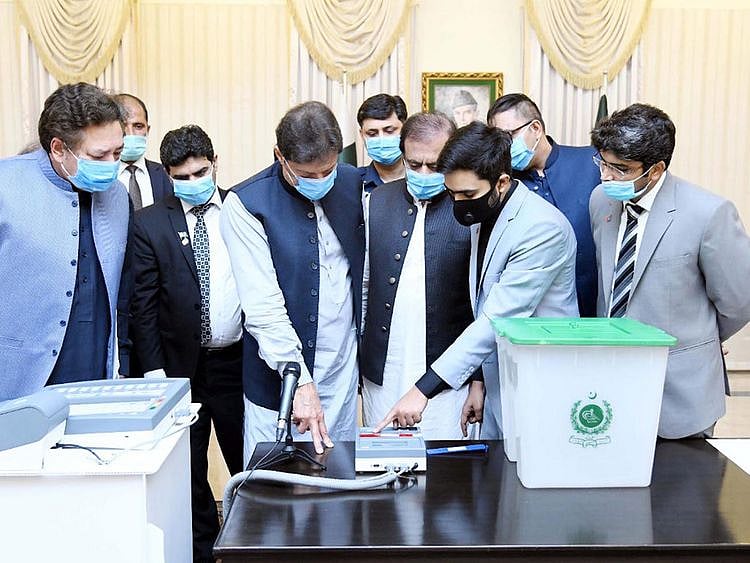Pakistan: Election Commission sets into motion e-voting legislation
EVMs will pave way for Pakistanis living abroad to vote in 2023 general elections

Islamabad: The Election Commission of Pakistan (ECP) has initiated work on the technical aspects of e-voting after the country’s parliament passed the electronic voting and voting right for Pakistanis living abroad in the next general elections in 2023.
The first committee will examine the technical aspects, the second financial cost of the process, and the third will inquire into the difficulties of implementing the system and suggest amendments.
The technical committee headed by the ECP secretary, would probe into technology to be used for voting, identify global standards and best international practices, the scope of work, the process of electronic voting machines (EVMs) and overseas voting, the production of EVM, its technical and functional analysis. This committee will also suggest the required process and mode of implementation.
The second committee, headed by the additional secretary administration, would study the financial implications of introducing EVMs and overseas voting rights by Pakistan. It will study pilot testing and the different mechanisms of the machines. The committee will also make recommendations on the budget requirement and other related issues. The ECP has proposed a project to the Planning Commission for a secure storage facility at H-11/4 in Islamabad.
The mandate of the third committee, headed by the director general law, is to make a comparative analysis of the laws governing electoral processes, identify difficulties and suggest amendments to the existing laws and rules.
Meanwhile, the federal cabinet has also formed a ministerial committee to coordinate with the ECP to ensure implementation of the recently passed legislation on electoral reforms, Information Minister Fawad Chaudhry said.
Controversy over the use of e-voting machines
The ECP secretary had earlier said it was premature to confirm the use of EVMs in the next general elections due to certain challenges. The ECP had raised as many as 37 objections over the plan to introduce EVMs.
The opposition parties have also raised concerns over the use of e-voting machines which they said were prone to tampering and could be hacked. However, the government said it has “addressed all the problems” pointed out by the ECP and said it would support any recommendations from the opposition parties that would allow improving the transparency in elections. Minister for Science and Technology Shibli Faraz has claimed that the locally developed EVMs could not be hacked.
Prime Minister Imran Khan’s government announced to introduce the electronic voting system to make the election process fair and transparent in the country where elections are often marred by allegations of rigging.
Sign up for the Daily Briefing
Get the latest news and updates straight to your inbox
Network Links
GN StoreDownload our app
© Al Nisr Publishing LLC 2026. All rights reserved.